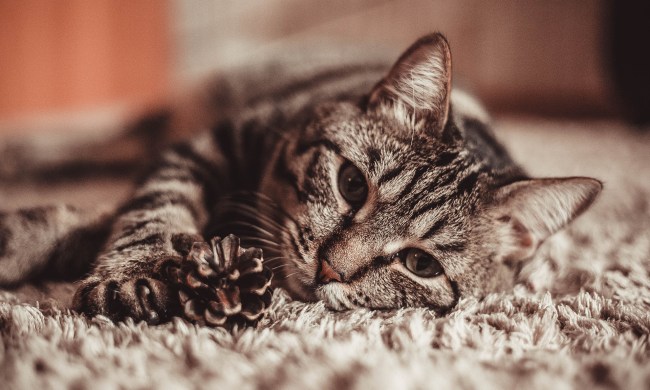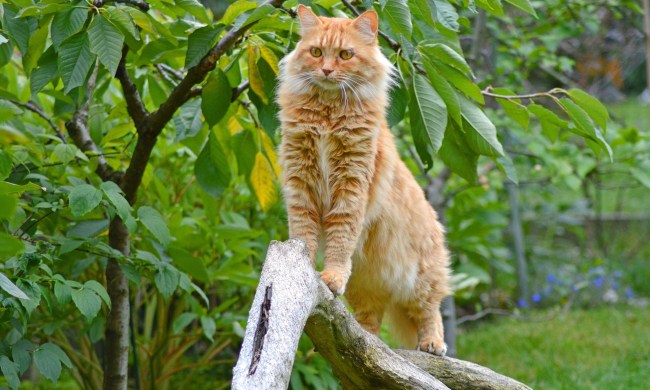You’re almost asleep, and then you hear it — the pitiful retching sound of your cat throwing up. All cat parents have been there, and the occasional hairball is normal. Cats groom themselves obsessively, and all that hair has to come up (or out) eventually. You can’t help but feel sympathy for the poor little thing, but it’s ultimately no cause for concern. But is your cat losing weight and throwing up? What causes a cat to lose weight in the first place? We’ll delve into the most common reasons cats lose weight, what you should do about it, and when it’s time to see your vet.
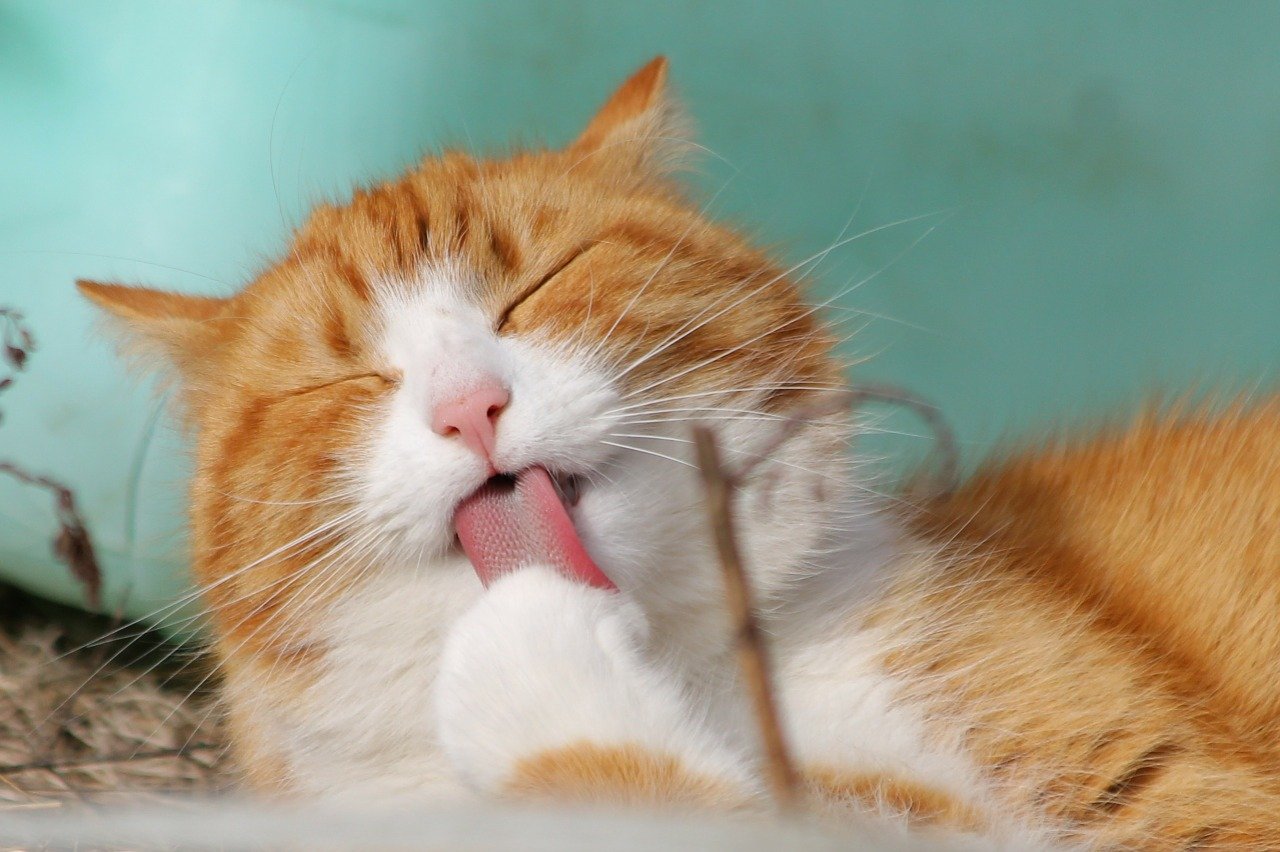
Why do cats lose weight?
While weight gain in cats is a frequent concern due to related health problems like heart disease and arthritis, it’s equally alarming when your fur baby suddenly begins to lose weight. You’ll want to keep tabs on her diet if you notice unexpected weight loss so you can make a note of whether your cat is eating the same amount as always or she’s lost their appetite. From minor issues with digestion to more serious ailments, there’s a variety of reasons why your cat might lose weight.
Common causes of weight loss and vomiting in cats
Let’s take a look at potential reasons why your cat may be losing weight and throwing up.
Food allergies
In addition to vomiting and weight loss, cats suffering from food allergies may be lethargic, suffer from diarrhea, scratch or bite at their fur, and experience hair loss. You’ll want to speak with your vet, as they may ask you to bring your cat in for a checkup. Your vet will also suggest trying out different food, such as a grain-free formula or prescription diet.
Regurgitation
Does your cat vomit a log of undigested food? Just like us, cats get excited when it’s time to eat — sometimes a little too excited. When cats eat too quickly, their food doesn’t have time to digest, and they end up regurgitating it. While seeing your cat vomit is always distressing, there’s an easy fix. Feed your fur baby smaller portions more frequently, and she should be able to digest her food without becoming ill.
Kidney problems
If your cat’s vomit resembles thick, yellow bile (as opposed to looking foamy like a hairball), she may be suffering from a kidney infection or other kidney-related problem. Other symptoms include changes in appetite, behavioral changes, weight loss, and lethargy. This one requires an immediate trip to the vet, who will check your feline friend’s kidney function and prescribe medication.
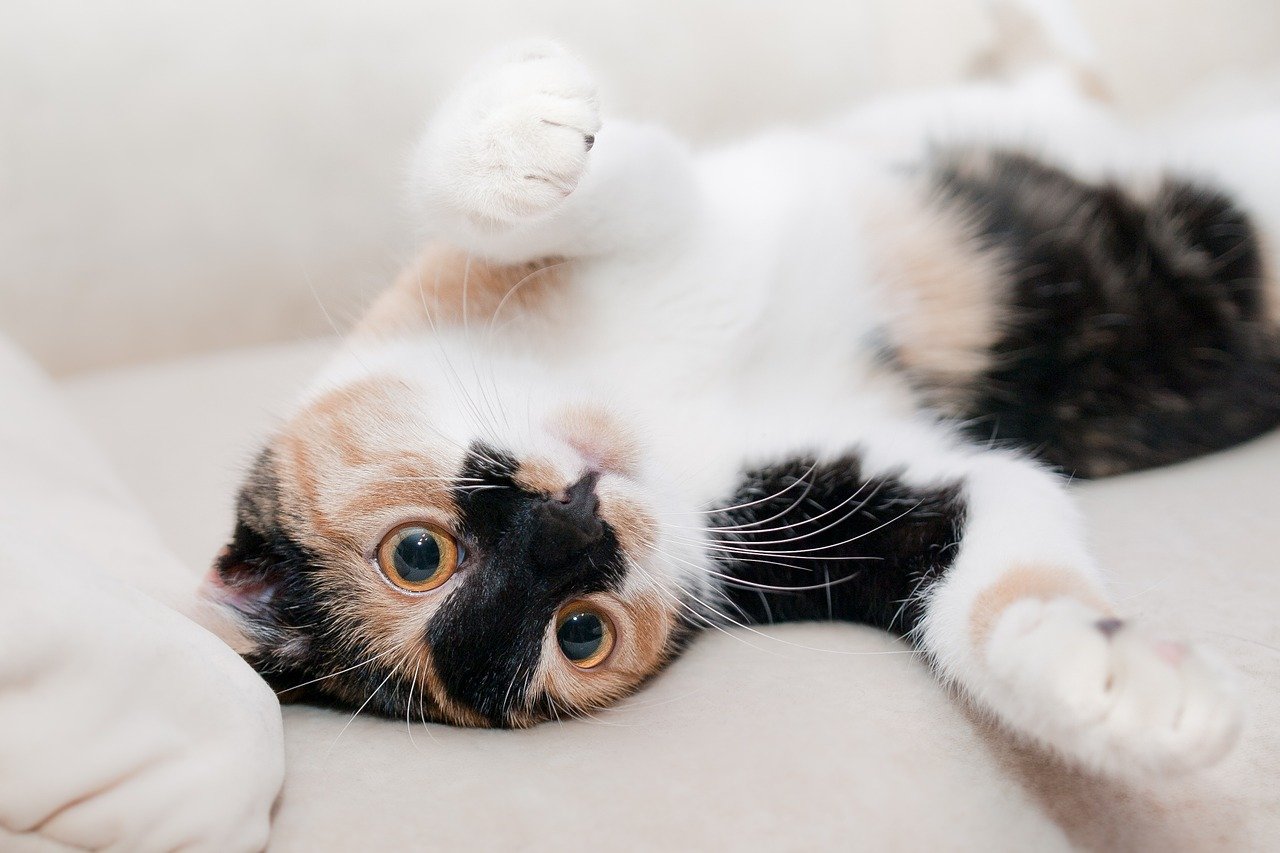
Intestinal parasites
These diabolical critters, more commonly called worms, don’t always cause symptoms. However, if your cat is losing weight, vomiting, showing signs of bloating, experiencing diarrhea, or suffering from breathing problems, you should take her to the vet to rule out intestinal parasites.
Psychological issues
Did you know cats can suffer from anxiety and depression just like humans can? If your cat has dealt with stress and upheaval recently, she may react with diarrhea, vomiting, loss of appetite, and weight loss. While major life changes, such as the death of another family member or the addition of a new pet or baby can certainly cause stress, the root cause could be something you would consider minor. Issues like dirty food dishes, loud noises, or food bowls placed too close to a litter box may cause anxiety and depression in your cat. Ensure your fur baby has access to clean bowls, a quiet place to eat and drink, and plenty of space between her bowls and her litter box. If the problem continues, please consult your vet.
Hyperthyroidism
Thyroid problems stem from tumors (most often benign) located on the thyroid gland. Common symptoms include increased appetite, vomiting, weight loss, diarrhea, increased thirst, increased urination, and even behavioral changes. Thyroid problems usually occur in older cats, but they can happen at any stage of life. If you suspect your cat may have thyroid problems, you’ll need to take her in for a checkup.
Feline infectious peritonitis (FIP)
Even more than the dreaded c-word, FIP is the worst-case scenario for any cat parent. It’s most common in younger cats, but it can strike at any age. Early symptoms include wasting, sporadic fever, lethargy, and loss of appetite. The specific symptoms of FIP depend on which form it takes: Effusive (also called “wet”) FIP involves difficulty breathing and bloating as fluid accumulates. The symptoms of noneffusive (or “dry”) FIP vary, as different organs may be involved. Vomiting, diarrhea, seizures, and ocular symptoms are all possible. Unfortunately, FIP is incurable and almost always fatal.
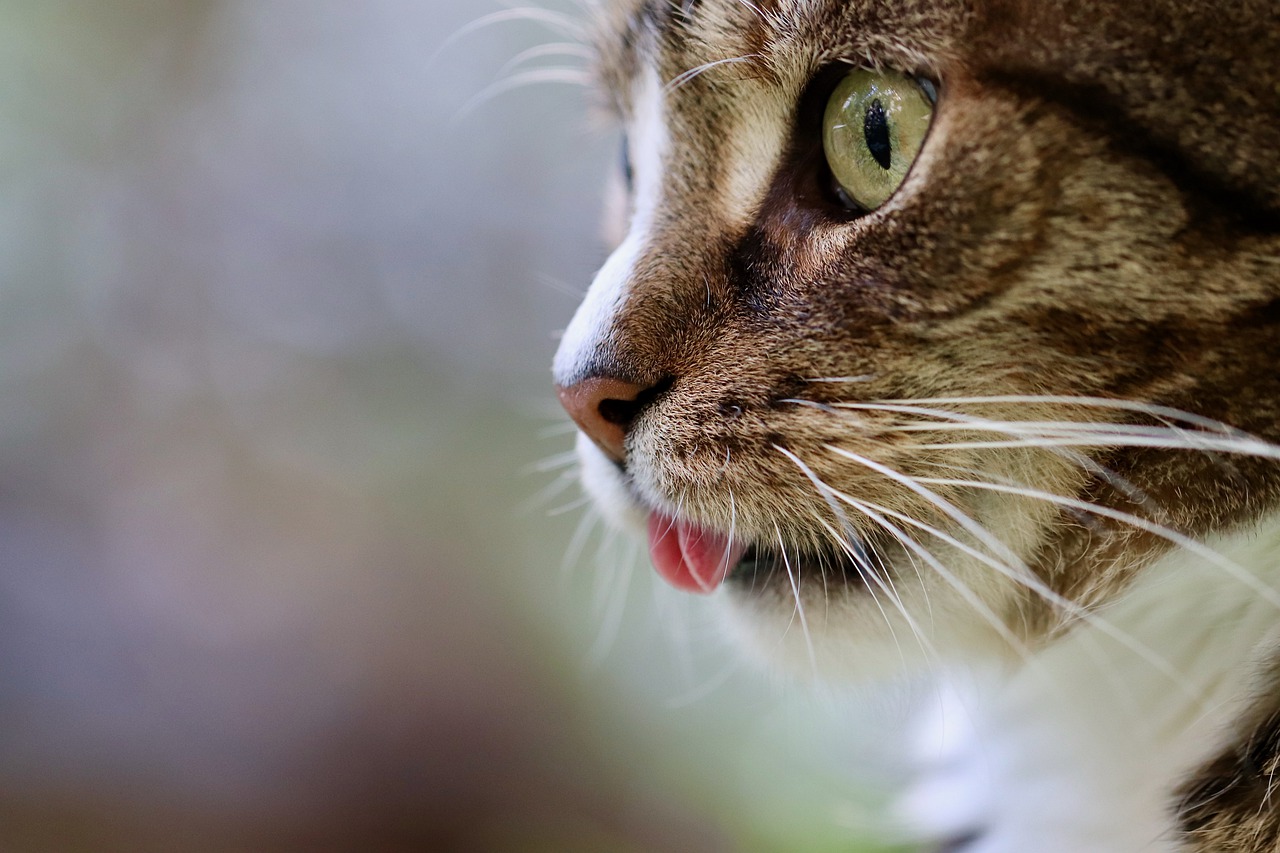
Your cat is a part of your family, and you want to ensure she lives a long and happy life. If you’ve recently moved, adopted another pet, or undergone another major life change, it’s possible your cat’s issues are stress-related and will resolve after she’s adjusted. Does your cat vomit her food immediately after eating? Try feeding her smaller portions, and she should stop. In other cases, a trip to the vet is in order. When it comes to your fur baby’s health, “Better safe than sorry” is always our motto.

